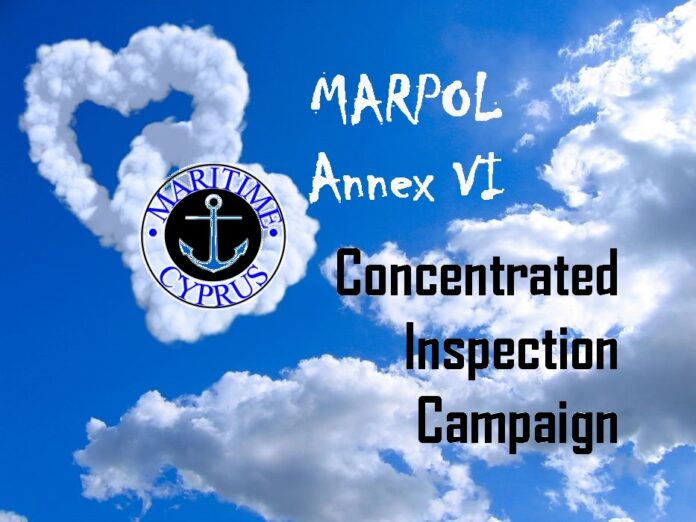
(www.MaritimeCyprus.com) Port State Control Concentrated Inspection Campaigns (CIC) are periodical inspections that focus on a specific topic. They are carried out during routine PSC inspections, with an additional checklist, for a period of three months.
This CIC will start in these PSC regimes on 1 September and last until 30 November 2018. The additional questionnaire is expected to be published at the beginning of August to raise awareness for compliance with requirements on the prevention of air pollution from ships. Once this questionnaire is published, we will update this article.
The goal of the CIC is to check the actual status of ships regarding conformity with air pollution prevention requirements. It also aims to enforce awareness of new maximum limits for sulphur in ship fuel oil, which will enter into force on 1 January 2020.
Usually, this additional questionnaire for the CIC focuses on the main deficiencies in the area(s) found during previous years. World statistics for the last three years show main deficiencies related to incinerator and record book of engine parameters (with deficiency code):
- (14206) Record book of engine parameters
- (14608) Incinerator including operations and operating manual
- (01124) International Air Pollution Prevention Certificate (IAPP)
- (14611) Ozone-depleting substances
- (01125) Engine International Air Pollution Prev. Cert.
- (01328) Ship Energy Efficiency Management Plan
- (14610) Operational procedures for engines or equipment
- (01138) International Energy Efficiency Certificate
- (14604) Bunker delivery notes
- (14615) Fuel changeover procedure
Considering the above deficiencies, we assume the questionnaire items will mainly be related to operational questions and certificates or manuals. In particular, the ship-specific fuel changeover procedure is assumed to be targeted. In some ports, fuel samples may be taken and analyzed on short notice.
Another relevant topic is related to the cooling mediums from freezers and air condition plants and the related documentation, recorded as ozone-depleting substances (deficiency code 14611).
We would like to remind you that all these operational deficiencies are often related to the Safety Management System (SMS) and will likely trigger an ISM-related deficiency, especially in case of numerous or repeated deficiencies.
Checklist from the MoU is not available yet, but readers can reference the relevant USCG Marpol Annex VI inspection checklist by clicking here.














Reblogged this on Brittius.